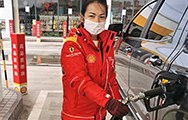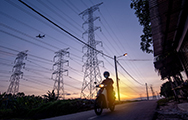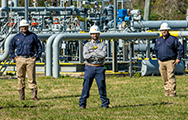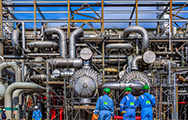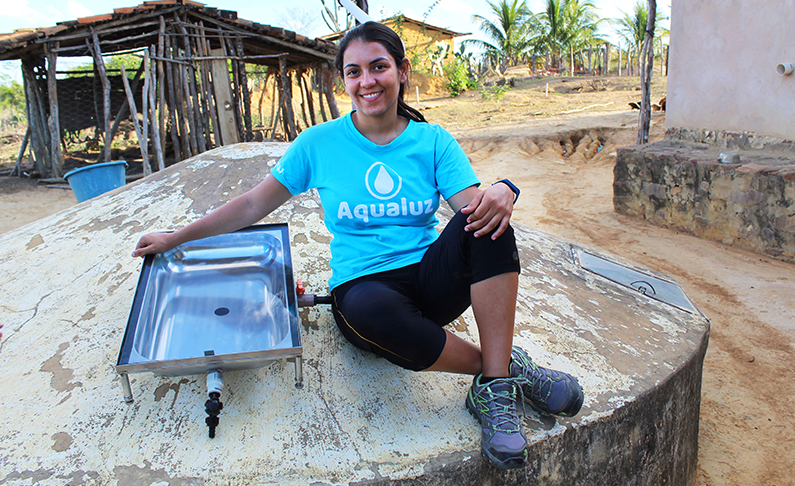Managing our impact on people
Engaging communities
Engaging with communities is essential to understanding their priorities and concerns. We listen to feedback people might have as well as ideas so these can be addressed in the planning and design of our projects.
Our Health, Safety, Security, Environment and Social Performance Control Framework expects us to first avoid or, where this is not possible, minimise our impacts on people through project design.
Our community feedback mechanisms enable us to receive, track and respond to questions and complaints from community members. They are also an important part of our approach to providing access to remedy. We regularly assess these mechanisms and look for ways to improve their effectiveness according to the UN Guiding Principles on Business and Human Rights. In 2020, we published an updated community feedback mechanism guide.
Feedback received
Community feedback
by type
Complaints received globally [A]
by category
[A] Chart excludes clusters of complaints regarding earthquakes in the Netherlands, which are managed outside of Shell.
Environmental complaints
by sub-category
Social complaints
by sub-category
Community liaison officers
We have a network of around 100 community liaison officers who are the bridge between Shell and our local communities.
The COVID-19 pandemic has had a severe impact on people’s livelihoods and access to basic services, such as health and education. We are working to help people in the communities where we work and community liaison officers have used online platforms to maintain relations with communities and continue social investment programmes during lockdowns and quarantines.
For example, in Brazil, we used virtual engagement sessions and social media to connect with people from 21 communities in eight municipalities, and in the Philippines we held a virtual meeting to hear community concerns about the closure of our Tabangao refinery.
Early in 2020, we launched a new global community feedback tool. This enables us to globally track and respond to all queries that we receive. It allows our community liaison officers to document all types of feedback. It is accessible via a mobile app and can be used to send feedback received in the field to those who can act to resolve issues. Asset managers can generate reports to help them analyse trends, detect underlying causes, and decide appropriate action.
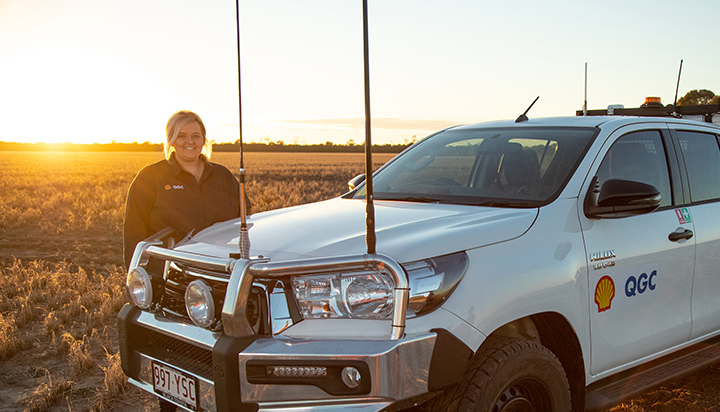
Our community liaison officer visits local communities in Queensland, Australia, to help build relationships and gather feedback about operations nearby.
In Oman, we appointed two community liaison officers to manage community relations and social impact during a seismic survey conducted by our Shell-operated Block 42 joint venture (Shell interest 50%) from September 2019 to March 2020. The project’s community feedback mechanism helped us to better understand concerns over safety and noise, among other things. We received 21 complaints and 165 requests and questions, as well as 13 positive comments, between March 2019 and March 2020, which our community liaison officers resolved working closely with the operations team.
We also launched social investment programmes delivered through a local non-governmental organisation in four schools. The road safety awareness sessions were attended by 489 students and 129 teachers attended the first aid training sessions.
Indigenous peoples
Our activities can affect indigenous peoples who hold specific rights for the protection of their cultures, traditional ways of life and special connections to land and water. We seek the support and agreement of indigenous peoples potentially affected by our projects. We do this through dialogue and impact management processes.
Shell has also developed a public position statement on Free Prior and Informed Consent (FPIC), a principle recognised in the UN Declaration on the Rights of Indigenous Peoples. We work alongside governments and seek the support and agreement of potentially impacted indigenous peoples before starting a project that may affect their rights.
Indigenous communities in the Americas
In Bolivia, we are working with the Weenhayek indigenous people and a local non-governmental organisation to develop a social investment project that aims to help preserve cultural practices and provide community benefits. This work includes improving food security and supporting income-generating projects for more than 1,000 community members. The Weenhayek people live and work in areas near our La Vertiente gas operations, which are being transferred to the government.
In 2020, we announced a joint reforestation project with Tŝilhqot’in National Government in a region of Western Canada affected by recent wildfires. Shell-funded tree planting will be managed by Central Chilcotin Rehabilitation, a Tŝilhqot’in forestry company. The project aims to plant around 840,000 trees in affected areas that have not regenerated naturally. Potential benefits of the project include indigenous employment opportunities and forest ecosystem rejuvenation. It may also lead to opportunities to generate carbon credits in future.
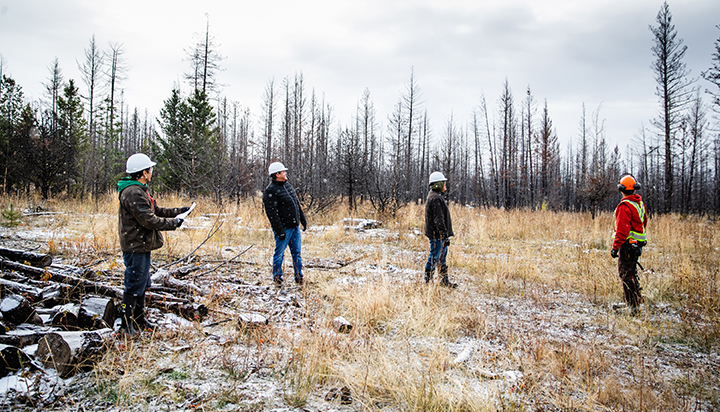
Representatives from Canada's Tŝilhqot’in National Government and Central Chilcotin Rehabilitation forestry company survey wildfire damage to a forested area of Tŝilhqot’in land.
In Argentina, we continued our extensive engagement sessions with indigenous people, as well as local farmers and nearby communities, in the Vaca Muerta shales basin in Neuquén. This included incorporating community feedback into our operational plans and schedules. We also help indigenous community members improve agricultural production through technical assistance and our employee volunteer programme. Through this outreach, we have managed to develop strong relationships with the community in the basin, avoiding impact on other people and disruption to our activities.
Cultural heritage
Preserving cultural heritage is an important part of our efforts to manage our social impact.
Cultural heritage refers to places of archaeological, historical, cultural, artistic and religious significance. It also includes the preservation of unique environmental features, cultural knowledge and traditional lifestyles.
Our approach starts with considering how to avoid or minimise our impact on cultural heritage. This can involve carrying out archaeological assessments to inform, among other things, project design and site selection. We then develop chance find procedures to deal with previously unknown heritage resources that may be discovered during construction. We train staff and contractors to make them fully aware of these resources to give them the authority to halt work if necessary.
Ancient sites in Oman
In 2020, Oman Shell Exploration and Production B.V. surveyed thousands of square kilometres in the Ash-Sharqiyyah Region of Oman to understand and map its archaeology before starting seismic exploration activities. The surveys revealed more than 150 sites containing some 450 archaeological finds including tombs, monuments, graves and stone tools, many of which were not officially recorded previously. These finds are of great value for Oman’s national identity, culture and heritage, and have now been handed over to the Omani government.
The Great Wall of China
In 2020, we built an underground gas pipeline in Shaanxi province, which runs beneath the Great Wall of China. When planning the pipeline, we worked with local cultural heritage authorities to carry out an archaeological assessment. This revealed the potential for our planned construction to damage the wall’s foundations and disturb unknown buried historical objects. As a result, we selected a crossing point with the least potential impact, performed all construction activities at least 150 metres away from the wall and used directional drilling to bury the pipeline at sufficient depth.
Read more about how we work with communities to preserve their cultural heritage at www.shell.com/sustainability/communities/working-with-communities
Involuntary resettlement
We sometimes require temporary or permanent access to areas of land or sea where people are living or working. Where resettlement is unavoidable, we work with local communities to help them resettle and maintain, or improve, their standard of living in accordance with international standards for resettlement (notably IFC Performance Standard 5 on land acquisition and involuntary resettlement). If necessary, we help support these communities to establish alternative livelihoods.
Monitoring resettlement in Tanzania
We have a 60% interest in, and are the operator of, Blocks 1 and 4 offshore southern Tanzania. The Tanzania Liquefied Natural Gas project is a planned onshore facility that, together with our partners, we intend to operate, pending a final investment decision. In 2015, Tanzania Petroleum Development Corporation, the national oil company, acquired land for the facility and in 2020 paid compensation to the 496 affected families. The families will have to vacate the site in 2021, as required by law.
We are discussing options with our partners to ensure that the homes and livelihoods of families affected by the Tanzania project are restored in a new location. We have also hired an independent consultancy to monitor the compensation process and ensure compliance with international standards in future, should the project reach maturity.
Helping families after resettlement
In the Philippines, we run several projects to help informal settlers improve their livelihoods and integrate with their new community, following their relocation in 2017 away from our nearby North Mindanao Import Facility. Resettlement affected 83 people due to noise from the facility’s fire-water reservoir and the expansion of the port authority’s berthing area.
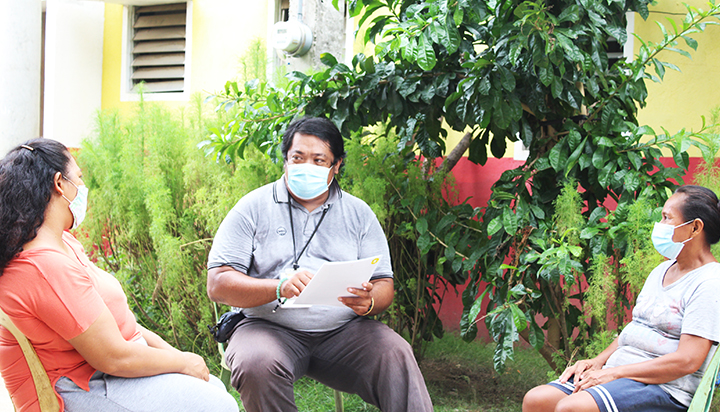
Shell’s community coordinator follows up with residents who have moved to new homes following changes at an import terminal in the Philippines.
In Kazakhstan, Karachaganak Petroleum Operating B.V. (KPO) (Shell interest 29.25%) continues to support the 464 families it resettled in 2018. In 2020, this work included improving the new village’s drainage system.
Read more about the KPO resettlement project at www.shell.com/sustainability/communities/working-with-communities/building-new-lives-in-kazakhstan
Read more at www.shell.com/sustainability/communities/working-with-communities/laying-the-foundations-for-new-lives
